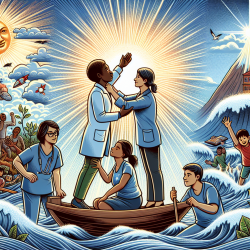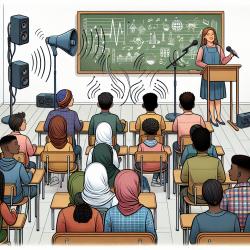In the realm of anesthesia, technical prowess is undeniably crucial. However, the significance of non-technical skills (NTS) cannot be overstated. These skills encompass communication, leadership, teamwork, and decision-making—elements that are vital for ensuring patient safety and effective healthcare delivery. The study titled "Non-technical skills of anaesthesia providers in Rwanda: an ethnography" sheds light on the practice of NTS in a challenging environment, offering valuable insights for practitioners worldwide.
The Importance of Non-Technical Skills
The Anaesthetists’ Non-Technical Skills (ANTS) framework categorizes NTS into four domains: task management, team working, situation awareness, and decision-making. While these have been extensively studied in developed countries, their application in low-income settings like Rwanda has been largely unexplored until now. The ethnographic study conducted in Rwanda highlights the critical role of communication and leadership within these domains.
Communication: The Heartbeat of Anesthesia Practice
Effective communication is central to all categories of the ANTS framework. In Rwanda, cultural factors such as hierarchy and a lack of assertiveness often hinder open dialogue among anesthesia teams. This can lead to poor coordination and compromised patient safety. Encouraging horizontal communication—where team members feel empowered to voice concerns—is essential for fostering a culture of safety.
Leadership and Role Definition
The study emphasizes the need for clear role definition and strong leadership within anesthesia teams. In resource-limited environments like Rwanda, where multiple providers may share responsibilities without clear delineation, this is particularly challenging. Training programs that focus on leadership skills can help providers take initiative and make informed decisions under pressure.
Overcoming Resource Limitations
Anesthesia providers in Rwanda often work under severe resource constraints, which can lead to resignation and acceptance of suboptimal outcomes. However, the study found that with targeted interventions aimed at improving NTS—particularly communication and leadership—providers can better navigate these challenges and improve patient outcomes.
Implementing Change: Strategies for Practitioners
- Encourage Open Communication: Create an environment where team members feel safe to speak up about safety concerns without fear of retribution.
- Define Roles Clearly: Ensure that each team member understands their responsibilities to prevent confusion and enhance coordination.
- Focus on Leadership Training: Develop programs that empower providers to take charge and make decisions confidently.
- Promote Teamwork: Foster collaboration across different roles within the operating room to ensure cohesive patient care.
- Pursue Continuous Education: Engage in ongoing learning opportunities to refine both technical and non-technical skills.
Conclusion
The findings from the Rwandan study underscore the transformative potential of non-technical skills in enhancing anesthesia practice. By prioritizing communication, leadership, and teamwork, practitioners can significantly improve patient safety even in resource-limited settings. As we strive for excellence in healthcare delivery, let us embrace these insights and commit to continuous improvement.
To read the original research paper, please follow this link: Non-technical skills of anaesthesia providers in Rwanda: an ethnography.










